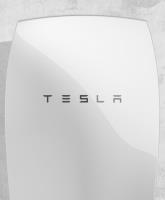 Add My Company
Add My Company
Sign In
To store or not to store...
01-03-2017

The recent fanfare surrounding the first install of a Tesla Powerwall battery in the UK is a sign of the direction that the solar photovoltaic (PV) industry is moving in.
Battery storage options have been in development for some years, and coupled with the cuts to the feed-in-tariff we are seeing a rise in the number of enquiries surrounding options for storing self-generated electricity.
With many of the main inverter manufacturers now releasing a variety of storage options for use in residential homes, there are viable off-the-shelf systems which could easily be installed, both into new systems and also retro-fitted. However, the question of whether the technology is yet at the stage to be cost effective is still a pertinent one.
If we take an example of a typical offering for a small residential system, how do the figures break down?
For a new array, the additional cost of installing a 2kW capacity battery would be around £3,000.
Assuming 6,000 charge cycles, with depth of charge of 90% (both standard manufacturers’ figures), then this battery can store: 6,000 x 0.9 x 2 = 10,800 kWh over the course of its lifetime.
Therefore, cost per kWh to use electricity by this method is £3,000 / 10,800 kWh = 27.7 p/kWh.
This is nearly two and a half times higher than a standard electricity tariff of around 11p/kWh, and without consideration for whether the 10,800 kWh is realistically achievable. Even allowing for a full charge and discharge cycle per day, which would not happen in our climate, it would take over 16 years to generate 10,800 kWh.
The Lithium-ion battery used in the example above is typical of the batteries used in these systems. They are based on the same technology that is used in mobile phone batteries, so it wouldn’t be too surprising if after 16 years of constant usage they lost some efficiency. The magnitude of this efficiency loss is another question that is open to debate. Manufacturers will clearly be keen to promote the reliability of their product, with the consumer set to lose out if they don’t quite meet advertised standards.
At present, we at isoenergy are unable to recommend a storage solution, but we are alert to the advances in industry for a time when they become viable part of any sustainable energy installation.
For more information on To store or not to store... talk to ISO Energy Ltd
Enquire Now
List your company on FindTheNeedle.
